''I am lucky for life'' – Kamilla Gafurzianova about herself, her career and life in America
Holidays are time to be with your family and relatives. By a quirk of fate, the Gafurzyanovs are living on two sides of the ocean and meet each other rarely. Realnoe Vremya's sports staff could not miss the chance to talk to famous Tatar fencer Kamilla Gafurzianova-Vaksman about the life of the famous athlete abroad after she ended her career.
''In America, sport is a public craziness''
How often do you visit Kazan?
As I am studying at the Sports Academy (Volga Region State Academy of Physical Culture, Sport and Tourism), I come to Kazan once in 6 months. I did not come in summer because there was a preparation for the Olympic Games. I was in the U.S. Olympic Staff, and we prepared American foil fencers for the Games in Rio.
Are you satisfied with the final results of your athletes?
To start with, America doesn't have a national team. Preparation for competitions takes place at clubs and in associations of athletes. Mainly girls were in my team. One of them managed to be in the top 16 in Brazil. It is very good considering that the results were quite sad before.
Does the state participate in development of sport?
There is no unified answer here. Everything depends on sport. The majority of sports clubs are private and commercial. But our club is non-commercial because we develop the Olympic movement, and the Olympic Committee of the USA also helps us. It is a small part of the budget. Beneficiaries and charity account for the foundation of financial investments. In America, big business, upper middle income people are ready to invest in sport, in a prospective sport just because they understand its benefit if not from a perspective of income but from a perspective of image and right PR.
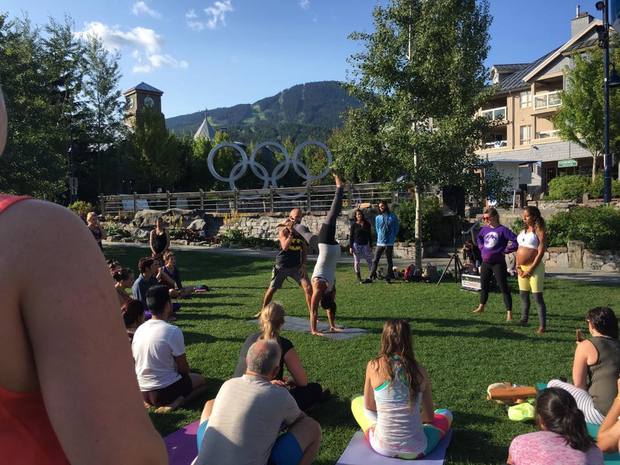
''In America, a great deal of people do sport, it is a public craziness, in a good sense.'' Photo: facebook.com/camilla.gafourzianova
What is the biggest difference of American sport from Russian?
First of all, it is mass. In America, a great deal of people do sport, it is a public craziness, in a good sense. Student sport, to name but a few, where children from needy families can finish higher educational establishments thanks to sports achievements. Naturally, it motivates to train and achieve new records. University campuses have 80,000-seat stadiums, and they are full! Generally speaking, it is impossible to escape sport in America. In Russia, only fans notice it. The bulk of the population notices sport only during the Olympiad. In the USA, sport is everywhere: in ads, on TV, in newspapers, shops, people speak about sport, NBA, NHL, NFL, Baseball League. I have never followed sport, I don't mean fencing but other sports. In America, I can't help but notice it. Probably even Ovechkin and Sharapova are better known in the USA than in Russia. I wish the same thing happened in Russia. Our sport is closed, people are focused on training and competitions. Abroad, athletes understand that a good ad can come in handy, attention in the media and notoriety – it all can favour, for instance, while searching for sponsors. At the same time, one can do fencing in Kazan and other sports at an early age for free. In America, nobody can believe me that our kids come and do sport, they are given a kit, their trips to competitions are paid, tournaments are organised at the state's expense. This is why we should learn something from the West, and the West should learn something from us.
How are fencing in Tatarstan and sport in general doing? Do you notice any changes and achievements?
A huge job is done now in Tatarstan. There is an unprecedented growth in terms of the development of sport and healthy lifestyle. It is pleasant to see that new sports complexes, arenas, fitness centres constantly open, how people care about themselves and their body. It is pleasant to hear about achievements of my compatriots, it makes me proud of Tatarstan. Yes, the last Olympiad had a very small number of participants from the republic for several reasons, there almost were medals (Aleksey Denisenko who took a silver in taekwondo is an exception). But the loss can be recovered easily with such a material and technical base.
Did you go to Rio last summer?
No, I was in a summer preparation camp in the south of the USA during the Olympics. It was a training camp. But I followed the competitions on TV, first of all, fencing, it goes without saying.
What would you say about the performance of the national team of Russia? What enabled the breakthrough? (Our fencers could not win a gold at the Olympic Games in London but brought four gold medals from Rio)
I was not close to the team, though I still keep in touch with many athletes of the national team of Russia. Attraction of foreign specialists, a new approach to the training process, it all affected the result. In addition, indeed, we have very strong athletes who just lacked a bit to win in London. In Brazil, boys and girls competed at full steam.
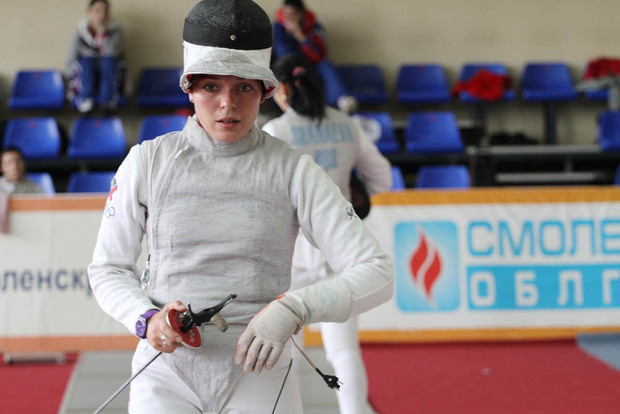
''It is pleasant to hear about achievements of my compatriots, it makes me proud of Tatarstan.'' Photo: youngstars.ru
''I don't know why I went to study engineering. My friend was studying there, and I followed her''
You already had a degree. Why are you taking the second degree?
Yes, I studied Transport Engineering at Moscow State University of Railway Engineering. I don't know why I went there. My parents were against a sports institute. They thought that sport was not forever, and I needed to have a profession that will feed me later. I did not know where to go. My friend in the national team was a first-year student at Moscow State University of Railway Engineering. Without hesitation, I sent my documents there. By the way, I had to pass uneasy exams, the university is serious, nobody made me any concessions as an athlete.
Anyway, you could not leave the world of sport…
All in all, I understood that sport for me was more than job. It was a style of life. This is why I decided to study for the second degree but here in Kazan. I am studying coaching. I love kids, to work with kids, communicate, see their achievements, help if there are misfortunes. It charges with a positive energy.
Who was your idol when you started doing fencing?
Nailya Gilyazova, of course. She is the fencing idol of Tatarstan, incredible athlete, coach and person. I always tried listening to her and noting all details at training. When you start your road in sport, it seems that an Olympic gold is a kind of unattainable Olympia. There are many athletes in the Kazan sports school, there are many such schools in Russia, in the world, and the podium has only three places. A person is given one or two chances to conquer this Olympia. The move to Moscow, CSKA sports club where I did fencing every day surrounded by world and European champions helped me.
How did you manage to adapt to such an environment? Were not you afraid of honourable fencers?
I was 18 then. I wanted something new, adventures, new acquaintances and emotions. Everything was interesting and exciting. I was afraid of nothing. I wanted to show myself, and joint training with noted athletes who had already achieved success helped to gain confidence. For instance, Vyacheslav Pozdnyakov, a bronze medallist in Athens, often performed sparring matches with us. When I managed to target him several times, I felt pride for myself and started to understand that I was worthy of something in sport and could win big victories on my own.
How did your parents react to your move?
My mum was against, she was afraid of letting me leave the nest. She worried a lot and could not get used to my absence. My dad supported me and thought Kazan was a small city for me, there were few perspectives, and I needed to go to conquer the capital. But now Kazan has more perspectives than Moscow. It stopped developing, while Tatarstan is constantly moving forward. It is especially seen in sport.
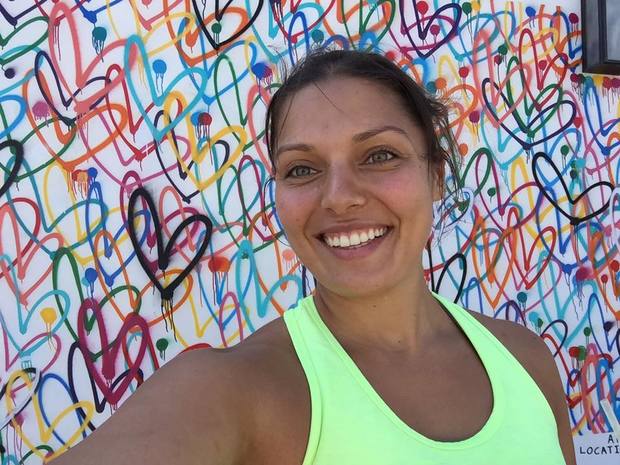
''I like travelling, taking photos much.<...> It is very exciting to know the culture of other countries and ethnicities, language, be in another environment.'' Photo: facebook.com/camilla.gafourzianova
''People in America often mix up Tatarstan and Kazakhstan. If not sport, nobody would know about us''
Indeed, we consider Kazan a worldwide known sports centre. Do people know it abroad?
In Europe, in the countries where football is popular, people know Rubin-Kazan. After the Champions League, the matches against Inter, Barcelona, people started talking about Kazan. In America, football is classical. In our understanding of this sport, it is not popular. This is why Kazan is known as a hockey centre. The creation of KHL helped a lot. Now our clubs are trying to compete with overseas teams. Players, who are the best NHL players at times, move to Russia. Americans can't help but notice it. And Ak Bars that has been the leader of our KHL for several seasons. For this reason, hockey fans have ever heard of Kazan. Few people, but their number is growing, have heard of UNICS. People in the USA love basketball much. They consider NBA the best league in the world. Sometimes they follow Euroleague. This is why the participation of the Kazan team in it helps the city to be known.
What else do Americans know about Kazan except sport?
Almost nothing. The phrase ''I am from Russia but not from Moscow and Saint Petersburg'' confuses them. They imagine a backwater, bears in the streets and balalaikas around. When I say I am not Russian but from some Tatarstan and Muslim – it is too much. They often mix up Tatarstan and Kazakhstan. It is a very widely spread mistake. If not sport, nobody would know about us. They would think we live in snow and see no summer.
How is it to return to cold Russia after living in New York?
Indeed, the climate in Kazan and America, especially in New York, is very different. The climate is mild, warm and very moderate there. It snows two or three times in a year. It is a real event – classes at schools are cancelled, trains and cars stop, people go outside and make snowmen. Snow is a kind of miracle there, an event. It looks surprising, of course. The climate is different, but I like ours too. I even missed real winter.
You were born in Kazan but passed all your adulthood in big cities – firstly, in Moscow, then in New York. How did you manage to get accustomed to these cities' pace of life? Where do you feel comfortable and calm now?
Here everything depends on a person's emotional background, their needs and desires. Some people need calmness and privacy, other people want a fast pace and constant movement. I got used to both. But in Kazan, I feel better, both my body and soul rest. The pace of life here is closer, especially with my family and relatives. Here I manage to do many 10 times more things during the same time, I can go for a walk.
Is Kazan changing a lot?
Yes, a lot. And it is noticeable. In 2013, my dad and I were on our way from the airport and turned to a new street, the dike along Kazanka. At first, I thought we were going along the river, I did not understand what my dad was doing. Then I saw Kazan Wedding Palace, the completely built stadium, Aquatic Palace. Kazan completely changed within 6 months. It is improving now. I feel that Kazan won't stop surprising me. Of course, when you live in Kazan, you don't notice it. But when you come here one or two times in a year, everything becomes noticeable.
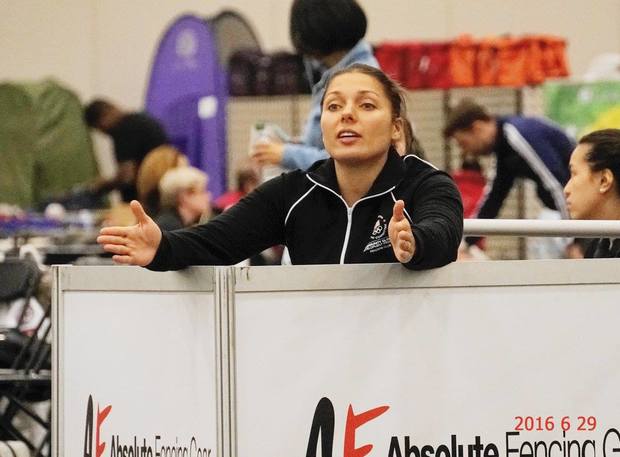
''My friends joke at me – all people go on holiday, and I go to get new certificates and diplomas. New knowledge it gives, not very diploma, is important, of course.'' Photo: facebook.com/camilla.gafourzianova
''I like travelling, taking photos much. At times when people ask me where I live, I say, ''On Facebook''
What do you like apart from sport?
I like travelling, taking photos much. It is good that during my sports career and now work as a coach I had and I have an opportunity to travel a lot. It is very exciting to know the culture of other countries and ethnicities, language, be in another environment. First of all, I sample its cuisine to know another country better. For me, an ethnicity's cuisine leaves the brightest impression of its country and culture, it characterises an ethnicity better. I tasted too many things and had so many experiments!
Do you cook yourself?
I do, though I don't like it much. I can prepare our Tatar dishes when I miss them in America, treat my friends and neighbours to ochpochmak, elesh and chak-chack. On my way, I eat in restaurants, try knowing the recipe and write it down. But I rarely try to prepare it. I like taking photos of food – I even have a separate account on Instagram for food! In general, social networks are gradually conquering my life. At times when people ask me where I live, I say, ''On Facebook''. Social networks have their own advantages – a possibility to communicate with people on the planet, an instant acquisition of all necessary information. But there are drawbacks, they consume the time.
What is the most unusual thing you have ever eaten?
Once in Europe, I ate fried Oreo chocolate cookies. It was yummy, you know!
Do you have other hobbies?
I also love learning much. My friends joke at me – all people go on holiday, and I go to get new certificates and diplomas. The new knowledge it gives, not the very diploma, is important, of course. For me, it is like a New Year present – I take indescribable pleasure when I know something new, I become smarter and savvy in different spheres. I am not a humanity majors, I am not a techie, but I am inclined to natural sciences – I am interested in almost everything. I remember that sometimes our coach explained us some fencing techniques via basic physical laws. It was far obvious and available than difficult fencing terms. I love learning languages – it is needed now. You will go nowhere without a language today. As Shakespeare said, ''the limits of my language means limits of my world''.
You speak Russian well. What about the Tatar language? Did not you forget it for several years spent in the USA?
To my shame, I almost forgot it. There is no practice. But I will make up leeway! I found a Tatar language course in New York. In general, the Tatar community in the USA is active, bright, interesting and original. We gather at TatFest, go to the park with a large cooking pot, bake belesh. Every year Tatars gather for Sabantuy from all America. Several years ago it took place in New York. And I celebrated our ''plough's feast'' overseas, it was surprising. Yes, it is incomparable with our Sabantuy. But living in America, one needs to have contact with the homeland, here such festivals are of big help.
What films, books, music do you love?
I liked philosophy, feature literature, our classic literature. But recently I started to read books on genetics, physiology, what I need in my studies. I go to the theatre, the theatrical culture is very developed in New York. People know our literature and stage performances based on our books. For instance, I was at Prince Igor opera on Broadway. Theatre and literature are one of the few spheres of life where Americans admit the leadership of Russia. They the Bolshoi Theatre and Mariinsky Theatre. In principle, Americans consider themselves the most developed and advanced people in everything. A banal example: Space Centre in Houston doesn't have anything about Gagarin and Leonov, but Moscow has a stand dedicated to Apollo.
''Universiade is a festival of peace and friendship''
Remembering your own sports career, what was the most surprising and remarkable thing?
Probably it will sound a bit surprising. But the Universiade in Shenzhen etched on my memory. In China, we lived like a family. All delegation lived in the village of athletes, sang songs near a fire, told curious stories – it was unforgettable experience, an indescribable and informal atmosphere. Probably it helped us to win because the burden of responsibility, fear of making a mistake and letting down the country, not the festivity, are felt at the Olympic Games. It did not give an opportunity to focus. I still have mixed memories of London 2012. I did not feel the Olympic spirit, festival of peace and friendship, I could enjoy neither my performance nor the Olympiad. I could not watch other competitions. In the Universiade, we supported the volleyball and basketball players. In the Olympiad, I wanted to support our athletes, look at Usain Bolt. But we were kept in the Olympic Village and prepared for competitions.
Do consider your career successful? Don't you regret having left sport early?
No, I am satisfied with everything. Generally speaking, I am lucky for life. So many athletes do sport, there so many national squads and teams, quite many people join national teams, but not all people are in the Olympic team. Having participated in the Olympiad, not all people reach the final line. Only a handful of people step onto the Olympic podium and win the Olympiad. A great deal of factors must coincide to make it real. It is a job of neither one person nor one season. It is a job of all life. People can achieve big success if only they do their best for sport. We covered all this road with the girls. This is why we can be proud of ourselves. It is grandiose success for us. Of course, we wanted to win a gold. But now I will perform these tasks through my pupils.
You come from a sports family. Your mum is a coach, your dad was a coach. Both younger sisters are fencers. Who is the major authority in your family? Whose example do all they follow?
I don't know who Diana's idol was (her younger sister who ended her career after marriage). I don't know who Elina's idol is now (her another younger sister who does sport in the Kazan fencing school). Our mum, Ella Gilfanovna, is the major authority in our family. We all listen to her in both sport and life. But I also try helping the girls. Now I am worrying for Elina (the conversation took place at the height of the New Year Fencing Championship of Russia among girls born in 2004 and younger). I try advising her how to work, train, believe in yourself and victories. The most important thing here is to not to cross the limit and stand between the sister and coach. Coach should be an indisputable authority for an athlete. There can't be any ambivalent opinion.
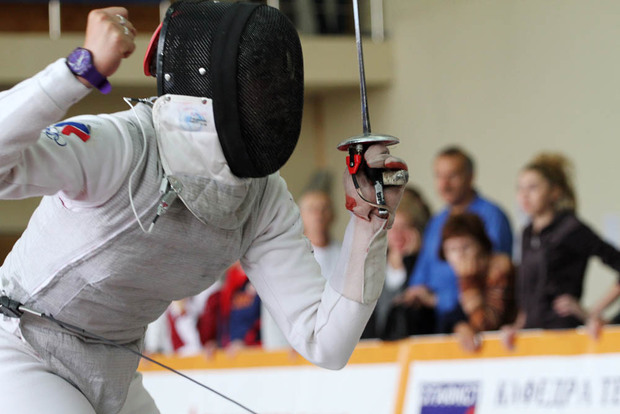
''Sport gave me much in life. I am sure it will give more. This is why I go forward without looking back.'' Photo: youngstars.ru
What changed in your life after you ended your sports career?
I have had more free time. Surprisingly, but I see my parents more often. Having moved to the USA, they come to New York, I go to Kazan. We can meet in Europe in junior or cadet fencing competitions. Earlier I had camps and training during the year. At times I miss the very atmosphere of competitions, the process. But I certainly don't miss the training and exhausting camps in Novogorsk. Theoretically, I had an opportunity to return to sport, I had a motivation. But destiny had other plans. Sport gave me much in life. I am sure it will give more. This is why I go forward without looking back. I am Tatar!